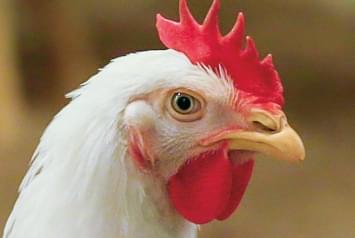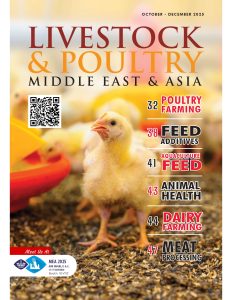Newcastle disease (ND) is a contagious viral disease affecting commercial poultry worldwide, resulting in performance problems and significant economic losses due to regular outbreaks, decreased egg production and high mortality. Genotype VII velogenic Newcastle disease virus (NDV) strains, which have been frequently reported across the globe since the 1990s, are the predominant concern in Asian countries. They are also prevalent in the Middle East, and North and South Africa. Ensuring protection against a broad range of ND virus types is important. In unvaccinated birds, Genotype VII can cause high morbidity and mortality, reaching 100% in commercial broilers, layers and breeders, said CK Mah, DVM, global commercial development livestock lead for Asia, Zoetis. “NDV Genotype VII is often further divided into subgenotypes, some of which are extremely velogenic (aggressive and dangerous),” Mah said.
“The symptoms and lesions induced by NDV vary, but without timely and appropriate interventions, significant losses are inevitable.” Enter vector vaccines “The introduction of recombinant vector vaccines with a herpesvirus of turkeys (HVT) carrier made them valuable tools to veterinarians and production managers to address this evolving threat because they have proven to be effective at inducing a robust immune response,” said Sing Rong, PhD, senior research director, Zoetis. “Several key factors are involved in the development of a good recombinant vector vaccine, including where the F protein will be inserted into the HVT genome,” Rong said. “Where you insert not only impacts the stability of the viruses, it impacts the efficacy so the insertion site is important.” Other important factors include selection of the best expression cassette that includes the F protein antigen sequence, the promoter — which goes in front of the sequence to drive expression of the antigen — and a poly A DNA sequence at the end of the cassette. “You want a strong promoter to have good antigen expression, but you don’t want it too strong,” Rong said. “If it is too strong, that can lead to instability, so different promoters have to be tried to find the best one.” Vector vaccines do not interfere with maternal antibodies, and in the case with Poulvac® Procerta® HVTND, onset of immunity is seen at 19 days of age.




















